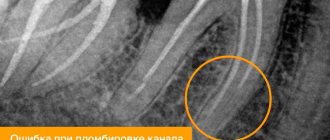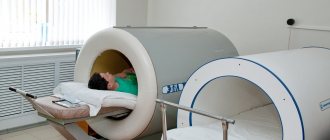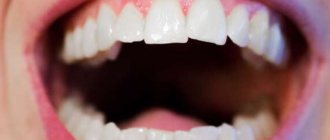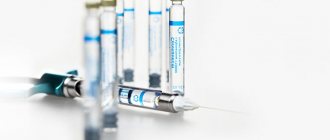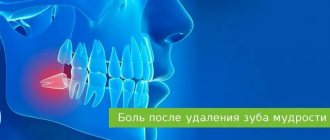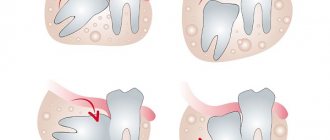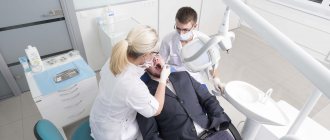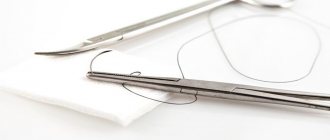Dental treatment can be therapeutic or surgical, and pain can occur after any type of intervention. If your wisdom tooth hurts after treatment, in most cases, this is a normal physiological reaction of the tissues to the procedure performed. Usually, painful sensations are quickly relieved with painkillers and go away on their own within a couple of days. But there are situations when pain after removal of the figure eight occurs due to complications or a violation of the technology of the therapeutic manipulation.
The dentist will definitely consult the patient about how the recovery process after the intervention should normally proceed, and if any symptoms appear, you should immediately consult a doctor. If all the doctor’s recommendations regarding the rehabilitation period are followed, but the painful sensations only increase, this is a direct indication to come for another appointment.
What to do after wisdom tooth removal
On this day, it is better to go home and relax: sleep, read a book, watch your favorite show or movie. It is not recommended to move a lot and intensively, or engage in physical labor.
Starting from the second day, it is necessary to rinse your mouth with antiseptics and take antibiotic medications to prevent the development of infectious and inflammatory diseases. The doctor decides which antibiotics to take after wisdom tooth removal. If there are no recommendations, then you can choose any medications with a wide spectrum of action.
Intense rinsing is not recommended, licking the blood clot is strictly prohibited, otherwise this will lead to the effect of a dry socket. A plug of clotted blood protects the resulting cavity and jaw bones from food particles and bacteria getting inside.
Do not consume hot or too cold foods, drinks, or overheat the body. Visiting the beach, baths, saunas is prohibited.
Smokers will have to give up cigarettes for 2, 3 days, or better yet for a week. Nicotine does not allow the wound to heal quickly, as it constricts blood vessels. Tissues are poorly saturated with oxygen and nutrients, and are more easily susceptible to infection.
A repeated visit to the doctor is necessary, even if the stitches do not need to be removed. The doctor will examine the wound, be able to identify complications in time and prescribe the correct treatment. You should not wait until the date of re-appointment if there is severe, ongoing pain, or the appearance of pus in the socket.
Why complications arise
After extraction, a wound is left in the gum and bone in which a blood clot (fibrin) forms. It “seals” the wound, preventing infection, and becomes the basis for the formation of new tissue that fills the space formed after the removal of the 8. After uncomplicated removal, healing lasts about a week. On days 3-4, the blood clot is gradually replaced by granulation tissue, which gradually fills the entire socket. Already after a month, the granulation tissue is completely replaced by connective tissue, and after 3 months - by bone.
Removal of third molars can have negative consequences that appear almost immediately after the intervention. Among the most common complications:
- “dry socket” - when a blood clot does not form or dissolves too quickly;
- paresthesia - damage to the nerve endings around the removed unit;
- alveolitis - inflammation of the socket;
- bleeding;
- cyst - fibrous formation at the site of an extracted tooth;
- endogenous periostitis (flux).
In rare cases, stomatitis, osteomyelitis, jaw trauma, and perforation of the bottom of the maxillary sinus are observed. The occurrence of complications is usually associated with ignoring the dentist’s recommendations regarding oral hygiene during the healing period, decreased immunity, and violation of surgical technique.
If your temperature rises after wisdom tooth removal
The symptom may occur immediately after extirpation. This is due to the action of the immune system in response to tissue injury and invasion of foreign elements into the body.
Doctors recommend taking antipyretics and using cold compresses to remove heat locally.
If the patient then develops a fever several days after extirpation, this may indicate the presence of an inflammatory process. The most common is alveolitis. It is accompanied by acute pain, which can radiate to the throat, temple, ear, depending on where the hole is located. If, when you probe the hole with your tongue, you feel an empty cavity, then you need to urgently go to the dental clinic where the surgery was performed.
Indications for removal of eighth teeth
wisdom teeth
begin to grow much later than other permanent teeth, as a result of which they often do not have enough space in the jaw. Lack of space provokes all sorts of curvature of roots and crowns. Doctors advise removing such molars. Here is another list of problems that may require extraction:
- A pronounced tilt of the figure eight towards the seventh tooth or cheek.
- Hypercementosis (excessive deposition of secondary cement, in which the tooth root thickens and becomes deformed).
- Incomplete eruption of the tooth or its location in the bone (retention).
- Destruction of the crown or roots of the figure eight, as well as neighboring teeth (after injury or caries).
- Granuloma (granulation in the form of cystic sacs with pus located in the periodontium).
- Rotation of the tooth around its axis or horizontal position (dystopia).
- Deformation of the roots (they can bend in every possible way, even twist into a spiral or form an angle of 90°).
- The close location of the roots of the upper eights to the nasal maxillary sinuses.
- In the presence of pericoronitis (an acute inflammatory process in the area of the eruption of the figure eight, accompanied by pain and an increase in ESR in blood tests).
An incorrectly growing 8th tooth can compress the facial nerves and provoke neuritis, which is expressed by sharp pain radiating to the ears, neck, temple, and can lead to facial paralysis.
How to relieve pain after wisdom tooth removal
The doctor prescribes drugs for pain relief to the patient. If there is no list, but the pain is severe, then you can buy Tempalgin, Baralgin, Ketanov and similar medications. Medicines must be taken according to instructions. If you take too many tablets, it will lead to side effects. One tablet is usually enough to stop an attack. Take three times a day.
In addition to medications, pain can be reduced with cold. A cold compress is applied to the cheek for 15 to 30 minutes up to four times a day. You can use pieces of ice or frozen food from the freezer. They are placed in a plastic bag and a towel, and then applied to the sore spot.
Stages of socket healing
The holes in the place of pulled out teeth heal in several stages. The first one lasts about a week. At this time, the wound heals, its surface becomes smoother. The patient can return to his usual lifestyle - eat regular food, brush his teeth, etc. Usually, during this period, a blood clot remains on the surface of the hole, which in no case should be torn off, as this can lead to bleeding and will slow down the final healing process.
Complete healing of the wound ends by the end of the second week. At this time, the clot disappears, and residual pain goes away. The last stage, that is, complete healing, ends by the end of the third week. If the intervention was very serious, this period may last 4 weeks. By this time, the nerve fibers and blood vessels are completely restored, and the gums become completely smooth.
What can you eat after wisdom tooth removal?
It is forbidden to put anything in your mouth for two hours after extraction. During this time, a plug of condensed blood is formed and fixed on the socket, which is necessary to protect against the entry of various elements, including pathogens. If you are very thirsty, you can do this through a straw or in small sips.
On the first day, you can drink non-hot drinks and eat liquid porridge, yogurt, and soups. Over the next few days, you should adhere to the following recommendations:
- food must be at a comfortable temperature; hot and too cold food is prohibited, including drinks;
- it is necessary to exclude solid foods that can injure the gums;
- You need to chew food on the side that has not undergone surgery;
- After each dose, you need to rinse your mouth with a warm saline solution;
- If your immune system is weakened, you can take additional multivitamins.
It is better to refuse or limit sweet, spicy foods, alcohol, and carbonated drinks.
Why does a pulled out tooth hurt?
The presence of pain after tooth extraction is due to the fact that soft tissues, blood vessels and nerves are damaged during tooth extraction. Typically, the first pain symptoms appear 3-4 hours after surgery. This is due to the fact that this is when the anesthesia stops working.
Also, during removal, the bone tissue of the jaw socket may be damaged. In this case, the pain during the healing period is more intense and prolonged. However, if the removal was carried out correctly, it will soon pass.
How long does it hurt?
In most cases, pain during removal worsens on the second day. On the third day they begin to decrease. By the fourth or fifth day, there is practically no pain. If by this period the pain after tooth extraction does not subside, the patient should consult a doctor, as this may indicate the emergence of complications.
However, it is important to remember that complete healing of the hole occurs only in the second or third week after the procedure. Until this time, the gums and bone tissue are vulnerable, so if they are irritated, pain may also occur. To prevent this from happening, you should follow your doctor's recommendations.
Headache
The recovery period after tooth extraction may be accompanied by headaches of varying intensity. They are associated with damage to the nerve fibers that go to the brain. Such symptoms should not frighten the patient, since as the wound heals, they will also pass.
Another cause of headaches during this period may be hypertension. The patient must notify the attending physician about the presence of such an illness. In this case, the surgeon will be able to select appropriate medications that will reduce pain.
Ear pain
For the same reasons, a patient may experience unpleasant or even painful sensations in the ear after tooth extraction. Most often they have a shooting character. This symptom is also normal and goes away in the coming days after the intervention.
Ear pain may worsen if, after the procedure, the patient does not properly care for the oral cavity and tries to chew solid food.
Pain in the gums
Pain in the gum is associated with its direct damage. In this case, not only the soft tissue suffers, but also the nerves, which are also located in the gums. Depending on the degree of damage, pain can last for different times and occur with greater or less intensity.
Increased pain in the gum may indicate the presence of fragments in its tissues, as well as the occurrence of one or another complication. If such symptoms occur, you should immediately consult a specialist.
How to rinse your mouth after wisdom tooth removal
The first few hours after extirpation, rinsing is strictly prohibited. This can lead to the natural plug being washed away, exposing the socket and bone. If bacteria penetrate inside, alveolitis or osteomyelitis will develop.
From the second day, carefully, not intensively, rinse your mouth with various antiseptics:
- chlorhexidine;
- miramestin;
- furatsilin;
- diluted potassium permanganate.
At home, you can prepare a solution with salt, soda, and add a few drops of iodine to the water. Herbal decoctions with sage, eucalyptus, chamomile, calendula, and oak bark perfectly relieve swelling and inflammation.
Tissue damage
During extraction, soft tissue is inevitably damaged. Sometimes the doctor even has to cut the gum to gain access to the unerupted crown. Until complete healing, the wound may be slightly painful, and the tissue around it will remain red and swollen for some time. The pain can radiate to neighboring crowns or even ears. If the discomfort becomes less pronounced every day, swelling and redness subside, there is no need to worry.
You should urgently seek medical help if:
- inflammation and pain intensify,
- not only the soft tissues in the oral cavity swelled, but also the cheek,
- there was an unpleasant taste in the mouth,
- pus is released from the wound.
All this indicates inflammation of the tissue in the hole.
How long does it take for gums to heal after wisdom tooth removal?
It is impossible to answer this question unambiguously, since the answer depends on the following factors:
- difficulties of extirpation - with a simple procedure, the tissues are minimally injured, which means the hole will heal within a few days; with incisions in the gums, the tissues heal for several weeks;
- age - faster for young people;
- the presence of complications, inflammatory processes that delay healing indefinitely until the infection is eliminated;
- compliance with doctor's instructions for the rehabilitation period;
- individual characteristics of the body.
Alveolitis
Alveolitis is an infection in the socket and the tissues surrounding it. As a rule, the disease is accompanied by injury to the alveolar process of the jaw. Such inflammation can occur for several reasons:
- infection during removal;
- strong bacterial plaque on dental units located next to the extracted tooth;
- failure to comply with doctor's instructions after surgery.
Alveolitis is characterized by severe pain in the gum area, swelling and bad breath. In addition, your general condition may worsen and your appetite may disappear.
Prevention methods
Tooth extraction is often required when the 3rd molar (molar) is out of position. However, surgery is also prescribed for caries, abscesses and cysts, and injuries. To prevent caries, you should pay enough attention to oral hygiene, undergo regular dental checkups and clean the enamel from plaque and tartar. Immediately after surgery, it is important to observe several conditions that will help avoid complications and headaches:
- use disinfectant solutions for the oral cavity - they clean the wound from pathogenic microflora;
- take only soft, liquid food in the first few days, so as not to further injure the socket;
- Do not remove a blood clot from the postoperative socket yourself, but if it falls out, consult a doctor.
At the Clinical Brain Institute, you can undergo all the necessary examinations, determine the exact cause of the headache and receive a competent treatment regimen. Our center employs only experienced specialists, general and specialized doctors, as well as modern, precision equipment. There are all conditions for quick and high-quality diagnosis, regular examinations, as well as outpatient and inpatient treatment of headaches.
